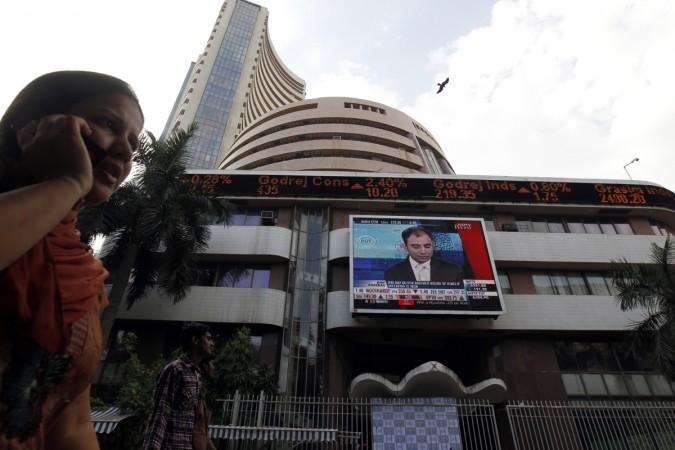
Losses witnessed in domestic stock markets last week were the worst since December 2011. The equity markets came under heavy selling pressure due to uncertainty over monsoon and lower-than-expected rate cuts by the Reserve Bank of India (RBI) on 2 June at its review meeting.
Benchmark indices posted a 4 percent decline in the week ended Friday, with the BSE Sensex falling by 1,059.95 points, or 3.8 percent to close the week at 26,768.49 points.
The RBI cut repo rate by 25bps to 7.25 per cent on Tuesday for the third time this year, as easing inflation and falling industrial production provided scope for the central bank to boost the economy with rate cut. But it fell short of expectations.
"The market had high expectation towards rate cut in the monetary policy update. Though it was as per expectations, the caveats are impacting the market negatively," Vinod Nair, the head of fundamental research with Geojit BNP Paribas, told IANS.
However, RBI Governor Raghuram Rajam cautioned that a deficient rainfall was the biggest risk ahead for the economy.
Markets were also weighed down by the government's downgrade of its forecast for monsoon rainfall this year to 88 per cent from 93 per cent earlier, raising concerns of drought in the country.
"The markets, even after a hard struggle, cannot manage to come out of bear grip and continues to languish," said Gaurav Jain, director with Hem Securities.
Nestle India's stock was in the headlines last week as its flagship product Maggi noodles was banned by several governments for having more than permissible levels of lead and MSG. The stock posted its worst losses since May 2006, declining 11 percent last week.
Other big losers include Tata Motors and Cipla. Tata Motors fell to its lowest since August 2011.
Overall, the Sensex has declined by 2.7 percent so far this year on the back of weakening sentiment among foreign investors, who are exiting due to slow pace of reforms.
The outlook for coming weeks is contingent upon many factors, say analysts.
"Going ahead, the progress of monsoon will be closely watched, in addition to the reforms initiatives of the Government. Passage of important bills like goods and services tax are a pre-requisite for the markets to sustain and rise from current levels," said Dipen Shah, head of private client group research with Kotak Securities.








